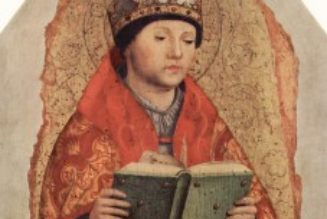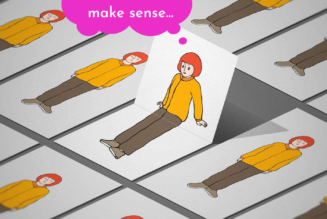Much commentary has focused on Vladimir’s Putin’s sponsorship of the Russian Orthodox Church, which extends even to the point of making the Church an arm of the State (a constant temptation in Russian history). It is true that a massive building project throughout Russia has constructed thousands of Orthodox churches, making some see Putin as some kind of new Constantine. The war in Ukraine should completely dispel such sentiments. There can be no Christian culture where Christians war with one another and violate human dignity.

We can turn to a Russian thinker, Vladimir Solovyov (1853-1900), for a prophetic assessment of the anti-Christian and anti-human nature of war. It comes from the introduction to his work Russia and the Universal Church, in which he argues that Russian can lay hold of true spiritual mission only by reuniting with the universal Church under the primacy of the Pope. I’ve highlighted in bold some sentences that stand out in relation to war. The excerpt begins with Solovyov’s notion of the cooperation of Church and State to form a truly Christian society, permeated by the Gospel and charity. It is an idiosyncratic vision, although one that challenges us to translate the Christian faith more fully and completely into our live and the world.
All are one in the Church through the unity of hierarchy, faith, and sacraments; all are made one in the Christian State through justice and law; all must be one in natural charity and free co-operation. These three modes, or rather degrees, of unity are inseparably connected. In order to impose that universal solidarity which is the Kingdom of God on nations and classes and individuals, the Christian State must believe in it as absolute Truth revealed by God Himself. But the divine revelation cannot be made directly to the State as such, that is to say, to a natural humanity outside the sphere of the divine operation: God has revealed Himself, He has entrusted His truth and His grace to an elect humanity, that is, to the Church, sanctified and organized by Himself. If the State, itself the product of human agencies and historic circumstances, is to bring mankind under the sway of absolute Justice, it must justify itself by submission to the Church which provides the moral and religious sanction and the actual basis for its work. It is equally clear that the perfect Christian society, or the prophetic union, the reign of love and spiritual freedom, presupposes the priestly and kingly union. For the divine truth and grace cannot fully control the moral being of mankind nor effect its inner transformation unless they first have an objective force in the world, unless they are incarnate in a religious fact and upheld by law, unless, that is, they exist as Church and State.
Since the priestly institution is a fact, and the brotherhood of perfect freedom is an ideal, it is the middle term especially — the State in its relation to Christianity — which determines the historic destiny of mankind. The State exists in order to protect human society against evil in its external and public form — that is, against manifest evil. The true social good being the solidarity of the whole, universal justice and peace, social evil is simply the violation of this solidarity. The actual life of mankind shows a threefold violation of that universal solidarity which is justice: justice is violated, firstly, when one nation attacks the existence or freedom of another, secondly, when one social class oppresses another, and thirdly, when an individual by committing a crime openly revolts against the social order.
As long as there existed in the history of mankind several separate States, absolutely independent of one another, the immediate task of each in the sphere of foreign policy was confined to maintaining this independence. But the ideal or rather the instinct of international solidarity persisted throughout human history, and found its expression either in that tendency to universal monarchy which culminated in the ideal and the historic reality of the pax Romana, or (among the Jews) in the religious principle which affirmed the natural unity and common origin of the whole human race, of all the sons of Adam (bene-Adam) — a conception afterwards completed by the Christian religion which added to this natural unity the spiritual fellowship of all those who are regenerate and made sons of the second Adam, the Christ (bene-Mashiah).
This new ideal was realized, however incompletely, in medieval Christendom, which despite its turbulent condition did, as a rule, regard any war between Christian peoples as a civil war and therefore as a sin and a crime. The modern nations, having shattered the papal monarchy which was the foundation of this imperfect but genuine unity, have had to substitute for the ideal of Catholic Christendom the fiction of the European balance of power. On all hands it is recognized, whether sincerely or not, that the true objective of international politics must be universal peace.
Two equally obvious facts, then, are to be noted: first, that there exists a general consciousness of the solidarity of mankind and a desire for international unity, for the pax Christiana or, if you will, the pax humana; secondly, that this unity does not exist in fact, and that the first of the three problems of society is as far from being solved at the present day as it was in the ancient world. The same is true of the other two problems.
Universal solidarity implies that each element of the sum total — each nation, society or individual — not only has the right to exist, but possesses in addition a peculiar and intrinsic worth which forbids its being treated as a mere means to the general well-being. The true positive conception of justice can be expressed in the following formula: each particular being, whether collective or individual, has always a place to itself in the universal organism of the race. This positive justice was unknown to the ancient State; the State protected itself and maintained the social order by exterminating its enemies in war, reducing its laboring class to a condition of slavery, and torturing or killing its criminals. Christianity, regarding every human being as of infinite worth, was bound to bring about a complete change in the character and action of the State. The ills of society remained the same, in their threefold form: international, civil, and criminal; the State, as before, had to fight evil in these three spheres, but the specific objective and the methods of the struggle could not remain the same. It was no longer a matter of defending a particular social group; this negative aim was replaced by a positive task; universal solidarity had to be established in the face of national differences; there had to be a reaction against class-antagonism and individual egoism in the name of true social justice. The pagan State had to deal with the enemy, the slave and the criminal; the enemy, the slave and the criminal had no rights. But the Christian State has only to deal with the members of Christ, whether suffering, sick or corrupt; it must pacify national hatreds, mend the iniquities of society, and correct the vices of individuals. In it the foreigner has a right to citizenship, the slave a right to freedom, and the criminal a right to moral regeneration. In the city of God there is no enemy or foreigner, no slave or proletarian, no criminal or convict. The foreigner is simply a brother from a far country; the proletarian is an unfortunate brother who needs succor; the criminal is a fallen brother who must be helped up.
It follows that in the Christian State three things are absolutely ruled out: first, wars inspired by national selfishness, or conquests which build up one nation upon the ruins of another (for the prime objective of the Christian State is universal solidarity or the pax Christiana); next, civil and economic slavery which makes one class the passive instrument of another; and lastly, vindictive punishment, especially capital punishment, inflicted by society upon the guilty individual in order to make him a buttress of public safety. By committing a crime, the individual shows that he regards society simply as a means to, and his neighbors as the instrument of, his own selfishness. But this injustice must not be countered with the further injustice of belittling the criminal’s own human divinity and of reducing him to the level of passive instrumentality by a punishment which leaves no room for his amendment or regeneration.
In the purely human order, the sphere of temporal relations, it was the duty of the State to give expression to that absolute solidarity of each individual with the whole universe which the Church represents in the spiritual order by the unity of her priesthood, her faith and her sacraments.
From the Introduction of Russia and the Universal Church
Join Our Telegram Group : Salvation & Prosperity



![Papal Power and the Obedience of the Faithful [Must Read]…](https://salvationprosperity.net/wp-content/uploads/2023/12/papal-power-and-the-obedience-of-the-faithful-must-read-327x219.jpg)



